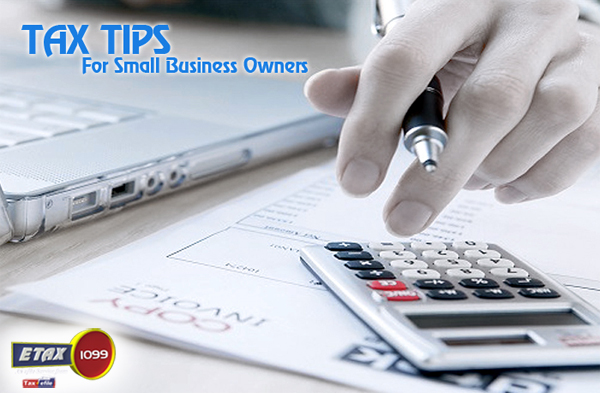- June 26, 2017

Cheers, to all successful taxpayers for surviving the 2017-18 tax year. Now it is time to start planning for the next financial year. Isn’t it too early to start? But it is good enough to initiate our plans and prepare our tax details right now as it can reduce hectic last-minute tax filing. Form 1099 refers to an “Information Return”. A person might get a 1099 form through the mail when he/she had received income from various forms other than salary during the tax year. The earnings may be through self-employment, small business, interests, dividends, government payments, and more. The firm or entity that pays you must file the appropriate 1099 form and send it to you by January 31, 2018.
Mid-Season Tax Tips for Small Business Owners
When you are engaged in a small business, then you must file a 1099 form for the small business. Like individual taxpayers, small business owners can also enjoy the advantages of tax-saving techniques. Presenting you the top ten strategies at the midyear for small businesses:
1. Stockpile on Depreciable Equipment:
As per the law, the maximum Section 179 deduction for business equipment is restricted to $25,000 only, whereas a 50% bonus reduction is not allowed this year. Hence at the time of tax return, you can increase the deductions, comprising retroactive extensions of favorable provisions.
2. 2. A New Start-up:
If you are starting a new business, then you are allowed to currently deduct up to $5,000 of qualified start-up expenses. In order to qualify for this tax break, you must be officially open for business.
3. 3. Self-Employment Taxes are Partially Deductible:
When you are an employee and working for an employer, then the employer is responsible for paying half of your social security and medical care tax obligations. But if you are a business owner or self-employed you must pay all those taxes. Then you can claim a deduction equivalent to your employer’s portion through Schedule C or Schedule C-EZ.
4. Hire from your Family:
When you are looking to hire workers, your first choice must be your family members. Yes, when you hire your spouse and offspring you get significant tax savings. And for your children, while they declare their income their tax rate is much lower. Additionally, if you are paying health insurance for the family members then those expenses are also coming under tax deduction through Schedule C or Schedule C-EZ.
5. Business Trips as Vacation Time:
Generally, you can deduct travel expenses such as airfare, transportation charges, lodging, and half of the meal costs if the primary purpose of the visit is business related. Note that certain expenses like sightseeing and jaunt are nondeductible.
6. Passion Towards Business:
For some people, their hobby might have turned into a business. Nevertheless, if any loss is incurred, then they must portray that they are engaging in the activity of generating profit. Else it comes under the “hobby loss” rules. So ensure to submit records to stand up to the challenge of the IRS.
7. Rejoice with your Staff:
For business, there is a particular part of deductions that are related to entertainment and it is limited to 50% of the cost. However, for the Labor Day picnic or July 4th when the entire workforce is invited you can have 100% of special tax law exceptions.
8. Fix Minor Repairs:
Under tax law, minor repairs are deductible whereas the cost of major improvements must be capitalized. On the other hand, when there is a major repair, IRS treats the entire cost as a capital improvement.
9. Claim Credit for Interest:
Many entrepreneurs and small business owners mostly depend on credit and loans. The IRS permits small business owners and self-employed persons to claim tax breaks on interest and carrying charges on loans.
10. Make Estimated Tax Payments:
As a self-employed employer, it is your responsibility to take care of deductions from each paycheck. It is wise to make quarterly estimated payments else you might faint at the giant tax bill and also hefty underpayment penalties.
In order to prepare tax expenses for the financial year, you may need professional assistance. To get legal advice related to your business, tax return preparation, and filing Form 1099 for small business/self-employees you can connect with Tax2efile.

